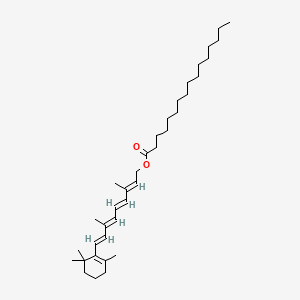
我也很关注这个问题,有没有人可以给点建议?/
yes if u want a BB, i think u should avoid using this kind of products.
Vitamin A, also known as retinyl palmitate, an inactive ingredient in many brands of sunscreen, may be linked to tumors and skin lesions.
Retinyl palmitate received some negative publicity in May 2010 when a press release was issued stating that it is linked to skin cancer and tumor growth. The FDA was implicated in this scare-tactic report, but as it turns out the assertions made against retinyl palmitate were not conclusive or firmly supported by published research. In fact, retinyl palmitate is one of the primary antioxidants found naturally in skin (Source: Toxicology and Industrial Health, May 2006, pages 181-191). Moreover, when retinyl palmitate is properly formulated in sunscreens (meaning stabilizing ingredients are included, which is typical) it does not pose a problem or health risk (Source: Photochemistry and Photobiology, November-December 2010, pages 1,390-1,396).
Taken from (http://www.paulaschoice.com/cosmetic-ingredient-dictionary/definition/retinyl-palmitate)
维生素A酯:(又名:棕榈酸维他命A, 维他命A酯, 棕榈酸视黄酯, 视黄醇棕榈酸酯)
在护肤品中非常常见的成分,在A家族中,它是温和渡和稳定性最佳的一员
(http://blog.sina.com.cn/s/blog_5f89d4c10101awv8.html)
棕櫚酸維生素A(Retinyl Palmitate)是防曬霜的成分之一,在紫
外線照射下,容易分解出損害DNA造成基因突變及導致皮膚癌的有
毒自由基。加拿大已經將棕櫚酸維生素A列入化妝品的限制名單中。
https://www.ewg.org/skindeep/ingredient/705545/RETINYL_PALMITATE_(VITAMIN_A_PALMITATE)/
來自「寶拉珍選」
retinyl palmitate(棕櫚酸維他命A酯)
一種維他命A的形式,由維他命A醇(純的維他命A)和棕櫚酸結合而成,研究顯示棕櫚酸維他命A酯具有抗氧化效果,並且可以調節皮膚細胞的功能 (出處:European Journal of Medical Research, September 2001, pages 391–398; and Journal of Investigative Dermatology, September 1997, pages 301–305)。
在2010年五月,有一份關於棕櫚酸維他命A酯的負面新聞,有媒體指稱維他命A醇和皮膚癌的形成有關,甚至連美國食品藥物管理局都被牽扯進來,經過查證後,這篇報導並沒有明確的研究報告支持,事實上棕櫚酸維他命A酯是天然存在於皮膚中的主要抗氧化物 (出處:Toxicology and Industrial Health, May 2006, pages 181-191),如果棕櫚酸維他命A酯適當地添加在防曬產品中(必須使用可以讓棕櫚酸維他命A酯保持穩定的成分),對於皮膚的健康是不會產生危害的 (出處:Photochemistry and Photobiology, November-December 2010, pages 1,390-1,396)。
其他關於棕櫚酸維他命A酯的資訊如下:
• 將棕櫚酸維他命A酯添加在食品、成藥或處方藥物是經過美國食品藥物管理局核可的,產品上市前,必須通過食品藥物管理局嚴格的測試,如果測試發現具有致癌的可能,就無法上架販售。
• 利用紫外線UVB的曝曬研究發現,棕櫚酸維他命A酯可以提供陽光的保護,它是一種強力的抗氧化物 (出處: International Journal of Pharmaceutics, October 2007, pages 181–189; and Journal of Investigative Dermatology, November 2003, pages 1,163–1,167).
• 體外試驗發現,純的維他命A(retinol)對於經過紫外線照射的皮膚細胞(培養在玻璃皿中)可能會導致突變,然而這份研究的結論如下,「存在於人體皮膚中的維他命A處在於一個相當複雜的環境,不是實驗室中培養品可以比擬的,因此經過光線激發的維他命A前氧化活性(pro-oxidant activity),需要進一步的臨床試驗與動物試驗確認,並且評估其相關風險。」
• 關於評估維他命A在紫外線下的研究,完全沒有考慮到防曬產品的使用,雖然紫外線對於皮膚的傷害和維他命A有關,但是目前並沒有在照射紫外線前,在受試者皮膚擦拭防曬的研究 (出處:Toxicology and Industrial Health, November 2007, pages 625–631; Toxicology Letters, May 2006, pages 30–43; and International Journal of Environmental Research and Public Health, June 2006, pages 185–190)。
你或許曾經讀過美國國家毒物計畫(National Toxicology Program)裡面的研究報告,上面說棕櫚酸維他命A酯在紫外線的存在下是一種致癌物質,皮膚科醫師分析了這份研究,並且將結論發表在在美國皮膚醫學會雜誌(Journal of the American Academy of Dermatology),我們摘錄如下:
「並沒有明確的證據顯示,在紫外線的存在下,棕櫚酸維他命A酯會增加皮膚癌的機會。」
王醫師說,「很重要的一點,美國國家毒物計畫裡面使用的白老鼠很容易受到紫外線的影響,甚至沒有使用到棕櫚酸維他命A酯,只要照射幾個星期的紫外線,就會產品皮膚癌和其他皮膚問題,因此將動物實驗的結果直接套在人類上必須要非常小心。」
「目前沒有任何人體試驗發現棕櫚酸維他命A酯與其他類A酸可能會致癌,而且根據數十年人類使用的結果,我們的結論是防曬產品中的棕櫚酸維他命A酯並不會引起皮膚癌,而且皮膚科醫師經常使用各種外用或口服的類A酸來治療青春痘、乾癬和老化等諸多問題。」
最後,「多年的研究也告訴我們,類A酸可以減少皮膚癌的發生,前提是使用者必須勤擦防曬,並且採取其他的陽光防護措施,像是減少曝曬時間、待在有遮蔽的地方、穿戴可以防護陽光的衣帽與太陽眼鏡,這樣就可以減少皮膚癌和老化現象的發生。」
支持上述結論的文獻可按以下連結: http://onlinelibrary.wiley.com/doi/10.1111/j.1600-0781.2011.00557.x/full; and www.aad.org/stories-and-news/news-releases/sunscreens-remain-safe-effective-form-of-sun-protection. 另見retinol。
6502 個人閱覽此文章
類別: 抗氧化物‧細胞溝通因子‧維他命
What's more, the anti-aging effectiveness is not the only questionable thing about RP. It also exibits questionable behaviour in the presence of UV light and was the center of a debate between the non-profit group, EWG (whose intentions are no doubt good, but its credibility is often questioned by scientists) and a group of scientists and dermatologists lead by Steven Q. Wang, MD, director of dermatologic surgery at Memorial-Sloan Kettering Cancer Centre.
Dr. Leslie Baumann wrote a great review of the debate and summarized the research available about retinyl palmitate here. It seems that there is a study showing RP being photo protective against UVB rays but there is also a study showing RP causing DNA damage and cytotoxicity in association with UVA.
We think that the truth lies somewhere in the middle, and we agree with Dr. Baumann's conclusion: "sufficient evidence to establish a causal link between RP and skin cancer has not been produced. Nor, I’m afraid, are there any good reasons to recommend the use of RP". We would add especially during the day!
https://incidecoder.com/ingredients/retinyl-palmitate
Retinyl Palmitate Description
Retinyl palmitate is a combination of retinol (pure vitamin A) and the fatty acid palmitic acid. Research has shown it to be an effective antioxidant when applied to skin. You may be surprised to learn that retinyl palmitate is found naturally in our skin (it is the most abundant form of vitamin A storage in animals), where it works as an antioxidant, particularly for helping to protect skin from UV light exposure—though it does not replace the need for sunscreen, and is it not approved by the U.S. FDA as a sunscreen active ingredient.
Reports that retinyl palmitate is not a safe ingredient are false. They’re based on a study from nearly 20 years ago that has never been reproduced or tested under real-life conditions such as how people use sunscreens that contain this ingredient. In addition, to date, there is no scientific evidence that retinyl palmitate is a carcinogen in humans. The safety of retinyl palmitate is supported by several accredited organizations, including the independent Cosmetic Ingredient Review panel, which has ruled several times that retinyl palmitate is safe as currently used in cosmetics.
Usage levels of retinyl palmitate typically run from 0.1–0.5%, where it’s often combined with other antioxidant vitamins such as various forms of vitamins C and E.
視黃醇棕櫚酸酯
Retinyl Palmitate: Naturalmente derivado da vitamina A, é uma alternativa muito mais suave ao Retinol, por ser muito mais senvível e não é irritante, é, portanto, uma ótima opção para todos os tipos de pele e para quem quer manter os poros limpos e a pele jovem, pode ser usado diariamente. O palmitato de retinil atua tanto na superfície quanto nas camadas mais profundas da pele, este ingrediente é poderoso, veja aqui suas qualidades para o tratamento da pele: Acelera a renovação celular; Clareia a pele: Impede a perda de colágeno; Mantém os poros limpos; Rápida absorção.
